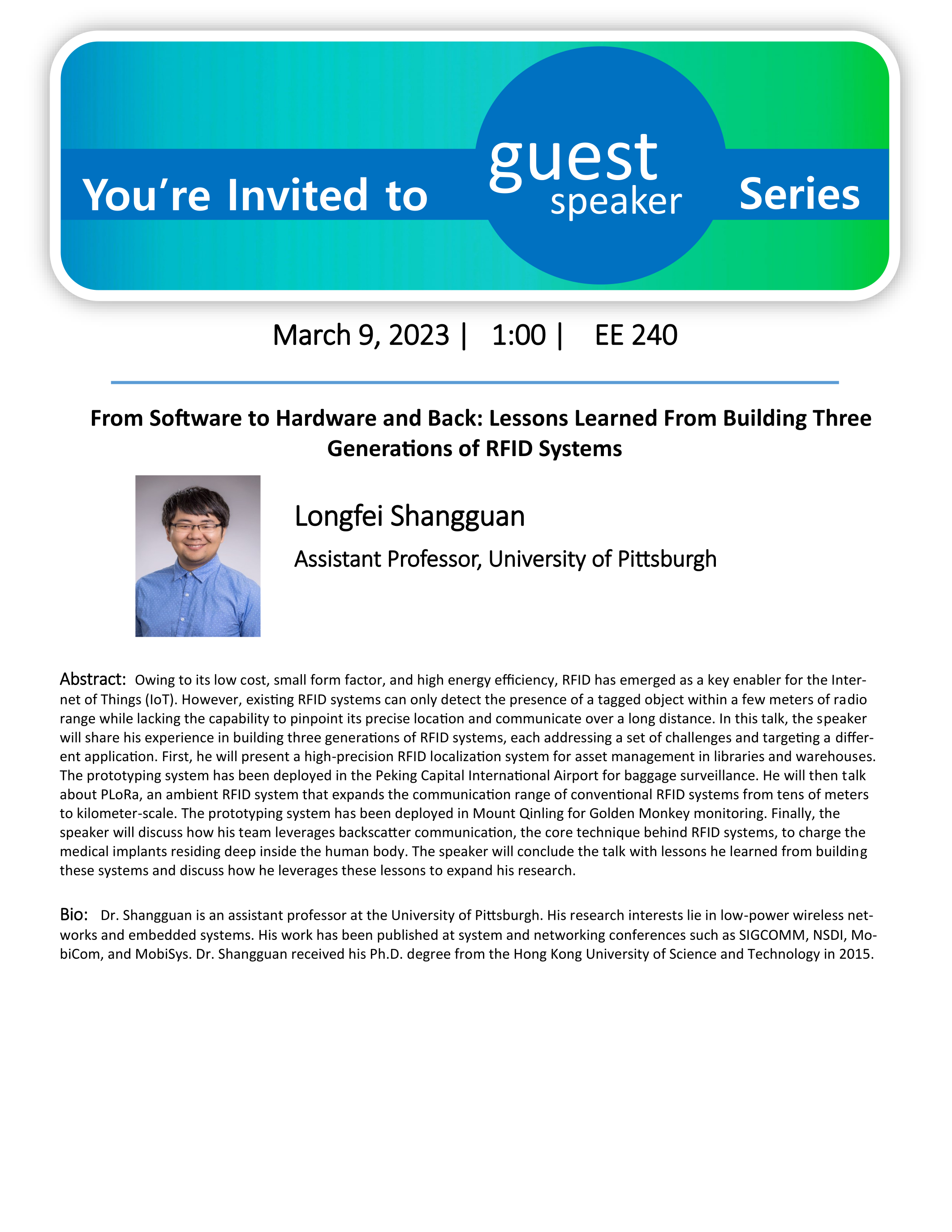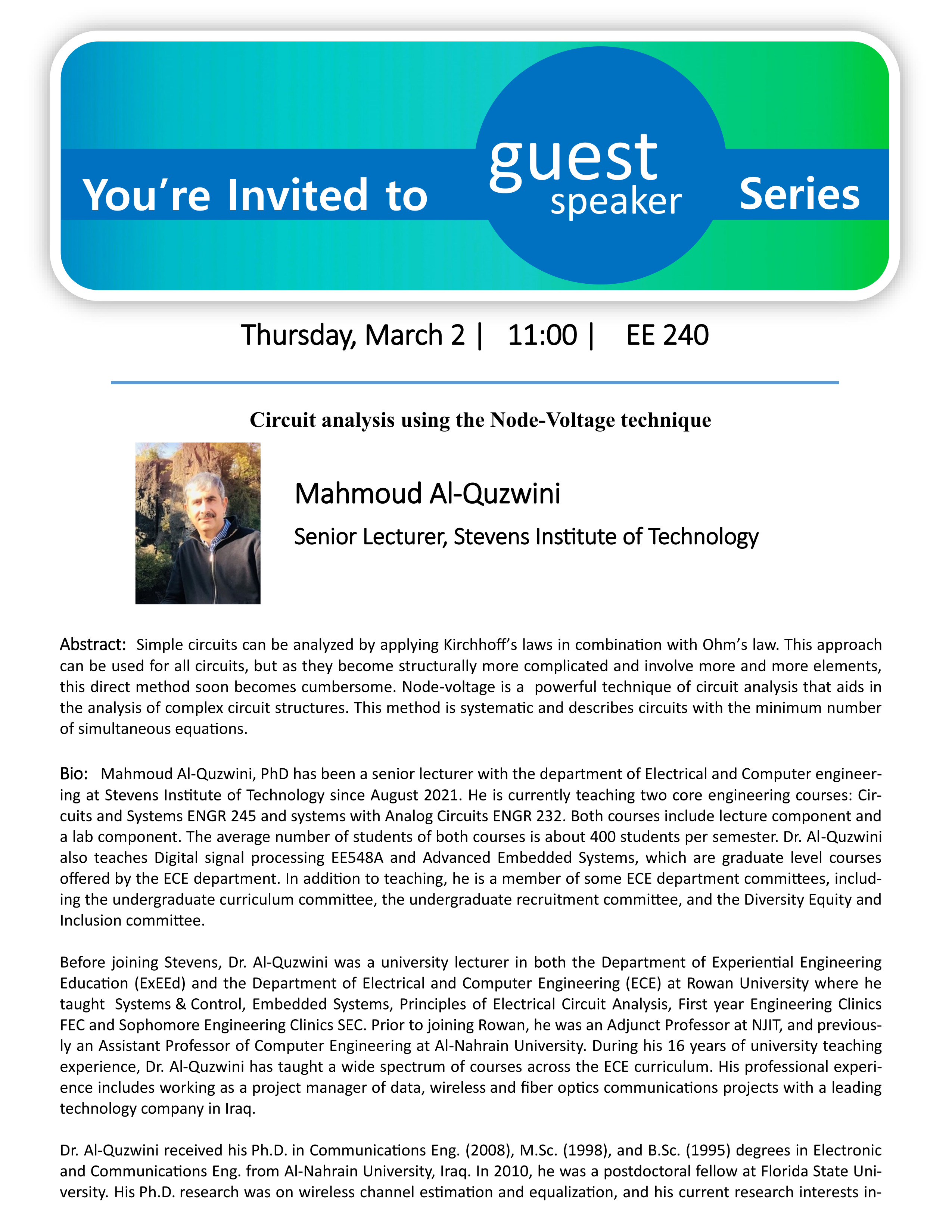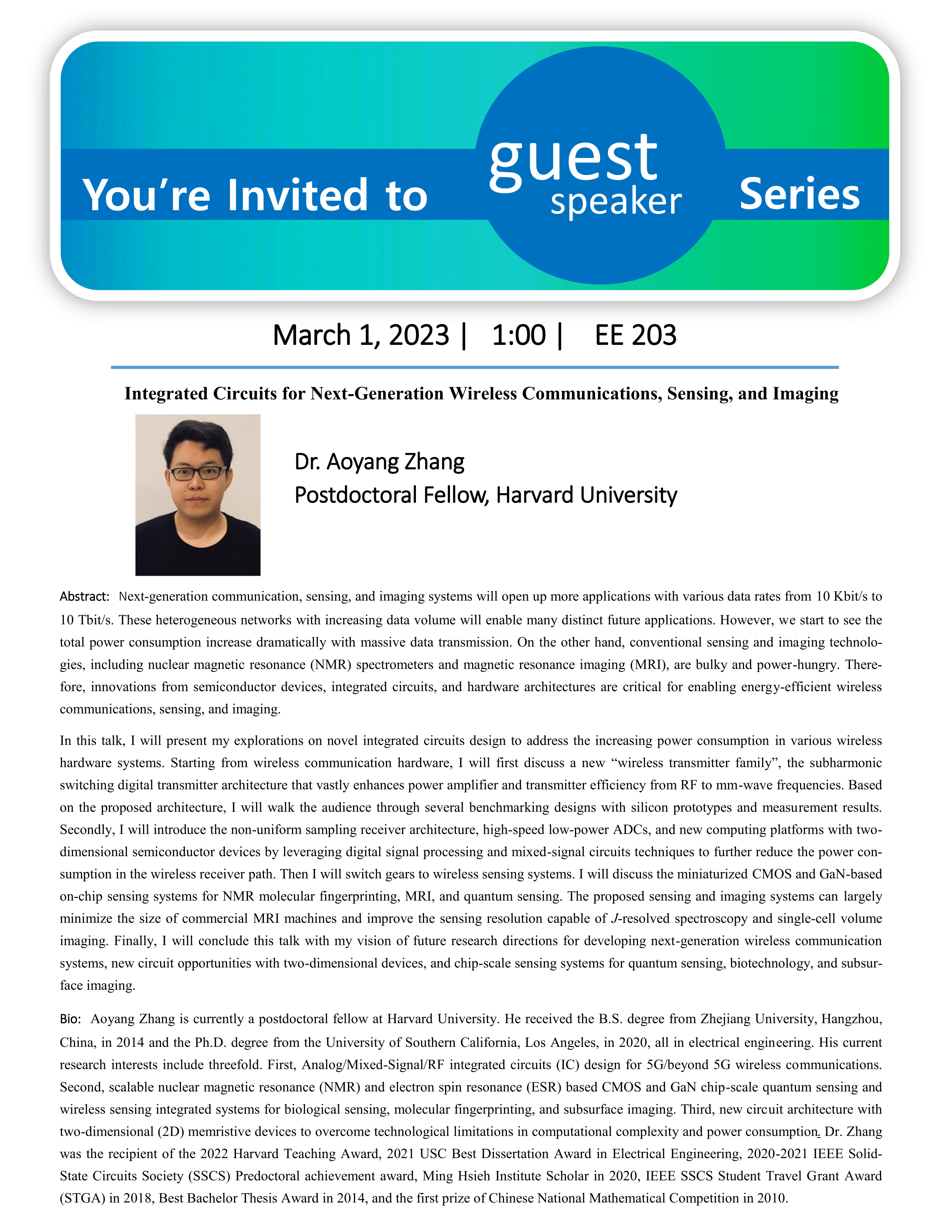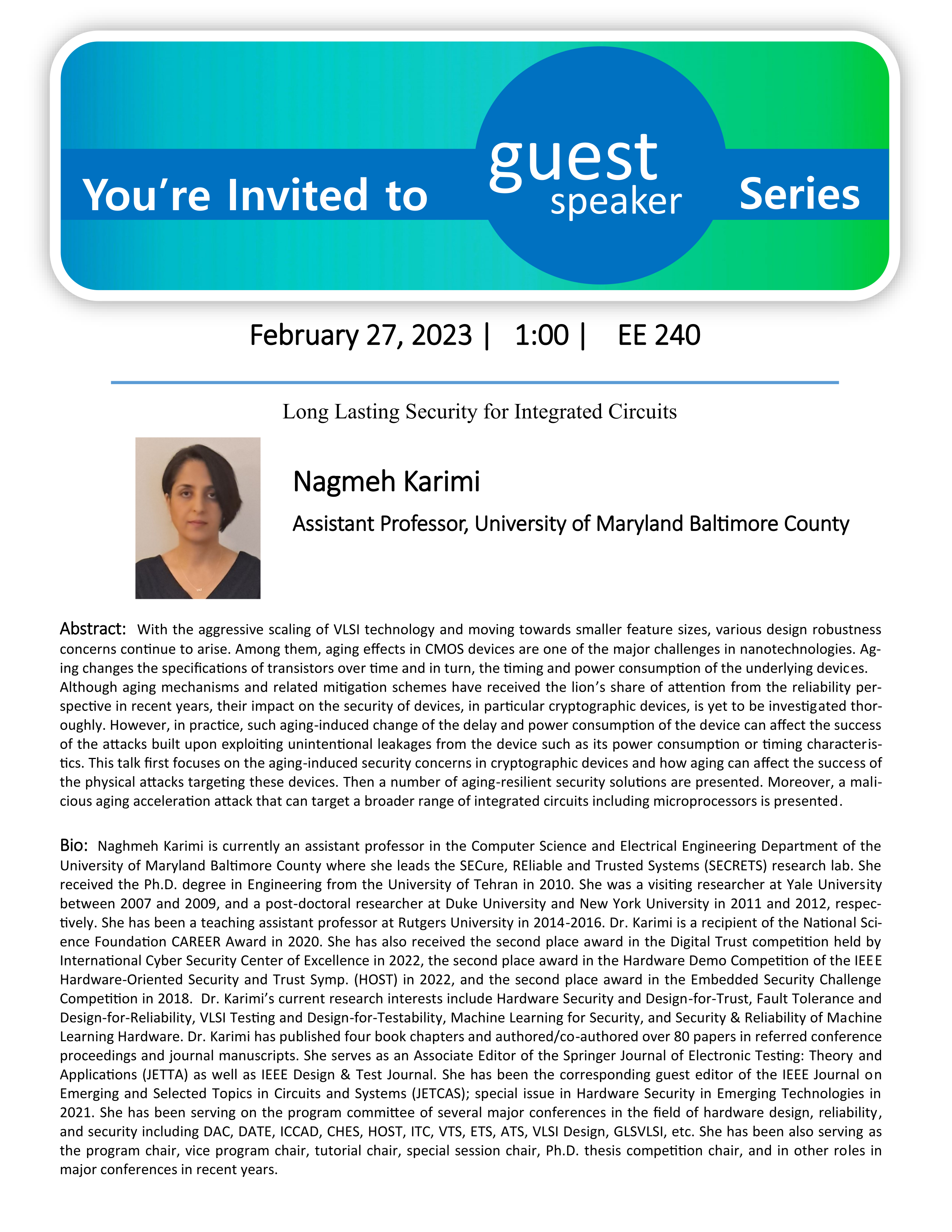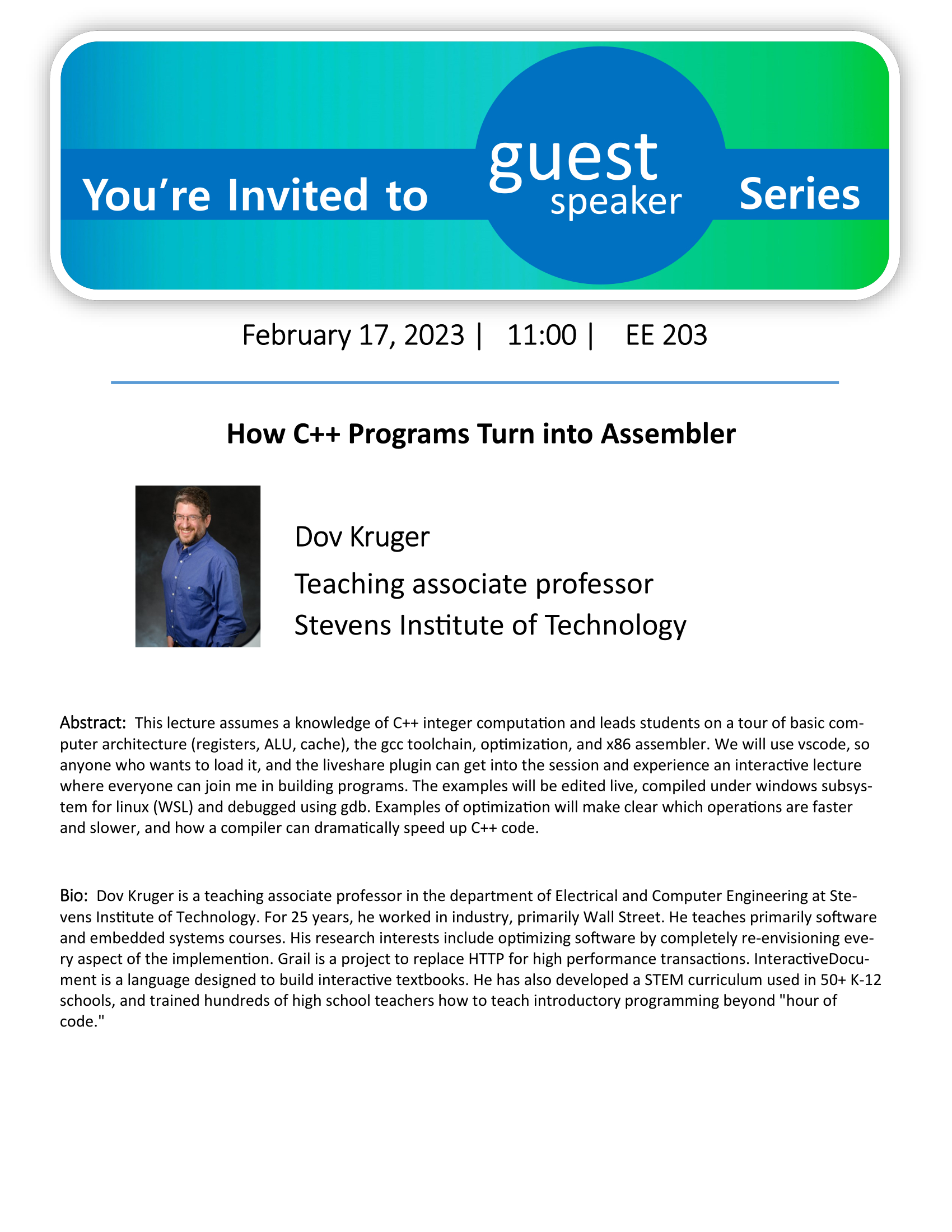Mehdi Javanmard Named National Academy of Inventors Senior Member
The National Academy of Inventors (NAI) has named Mehdi Javanmard, an associate professor in the School of Engineering Department of Electrical and Computer Engineering, a senior member. He is one of 95 of the foremost emerging academic inventors identified by NAI’s member institutions to be welcomed to the 2023 class of senior members.
“I’m extremely delighted for this recognition by the NAI for my lab’s efforts in developing electronic and biomedical technologies,” says Javanmard. “It’s truly an hoor to achieve this career milestone in becoming a senior member of the NAI.
“I must thank my students, postdocs, and collaborators for their efforts. I could not have achieved this without their help. I also give special thanks to the fantastic staff at the Rutgers tech transfer office for being so supportive of my team’s efforts.”
NAI senior members are active faulty, scientists, and administrators from NAI member institutions whose remarkable innovations have produced technologies that have made, or aspire to make, real impact on the welfare of society The senior members have also achieved growing success in securing patents, licensing, or commercialization while educating the next generation of inventors.
“This is a well-deserved recognition of Mehdi’s accomplishments, which brings national prestige and visibility to Rutgers, the School of Engineering, and the Department of Electrical and Computer Engineering,” says interim dean Alberto Cuitiño.“
Cutting-Edge Inventions
Javanmard holds 6 patents for his inventions, with another eight patents pending. Among his health-centric devices are:
-
Lab on a Chip, hand-held or wearable devices equipped with biosensors that monitor exposure to bacteria, viruses, and toxic pollutants
-
A graphene-based sensor for managing asthma and other respiratory diseases
-
A tool that analyzes microbes in aquatic environments to help assess the effects of climate change on sensitive ecosystems
-
The use of nanowell impedance sensing for a wide variety of medical applications, such as the detection of stress hormones like cortisol in blood; smart bandages for monitoring biomolecular activity during wound healing, in collaboration with biomedical engineering professor François Berthaume; and a covid breathalyzer in collaboration with mechanical and aerospace engineering professors Edward DeMauro, a German Drazer, and Hao Lin.
Javanmard’s innovative wearable impedance cytometry and integration of machine learning and impedance cytometry analyzer has been licensed to RizLab Health. “This is a startup company spinoff out of my lab at Rutgers that’s working to develop a handheld blood cell analyzer for oncology, infectious disease, and mental health patients,” he explains.
Javanmard will attend the Washington, D.C. celebration of the 2023 class of senior members at the NAI’s annual meeting, Diversifying Innovation for a Strong Economy and a Sustainable Future in June.


